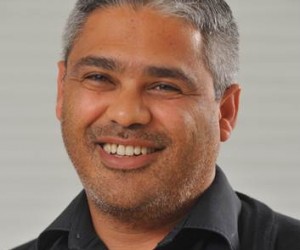Much has been talked about the recently held Energy Indaba hosted by the Department of Energy (DoE). Dominating the public discourse includes issues such as the department’s failure to extensively consult with relevant stakeholders in the energy sector, as well as the urgency around the convening of the Indaba, to mention but a few.
Nevertheless, in any public discourse with a highly charged environment, the energy sector remains a topical matter in the hearts and minds of many South Africans. However, what is more important is a constructive debate that seeks to provide an overall perspective on some of the items debated at the Indaba.
Fortunately, I had the opportunity of taking part in the Indaba for its entire duration and intimately contributed in the commissions, which revered on solid and tangible discussions seeking solutions.
Take away points
Economic Growth
Its appreciated that little can be achieved without stimulating an economy. The economy, as the backbone of our country, correctly so, featured extensively. Amongst some of the discussions which featured, included specialist energy sectors namely, renewables, gas, coal, nuclear and liquid fuels. Furthermore, as the sectors develops, investments in skills development, R&D, technology transfer and innovation remain imperative. An important take away point in the discussions was the highlight that an energy value chain be created with a long-term view in mind. This will allow for new entries in the sector to be developed and matured over a period of time and capability to be established amongst previously disadvantaged communities.
There are significant benefits to be gained, at this time in the country’s history, by investing in energy programmes across South Africa. Developing key capabilities over the medium term will allow South Africans to export its intellectual capital to its neighbors and assist in the development of the region as a whole
Enabling Infrastructure
From an infrastructure perspective, central to development is the enabling infrastructure for power stations, refineries, wind and solar farms. Some of the highlighted issues include, a symbiotic relationship between infrastructure such as roads, water and sewer services, port facilities, skills training centres and health facilities to name but a few. These play a critical role in ensuring that an environment which is fit for purpose is established.
Example of this is the Coega Special Economic Zone having positioned and created a solid foundation for Coega SEZ’s readiness for energy projects, including attracting multi-billion rand investors in the energy sector that have jointly created more than 1800 jobs. Some of those investors include a R3,5 billion Dedisa Peaking Power Plant, with a capacity of 342MW and a green project, a multi-million rand 48KW Solar Plant, which is located and feeds power to the CDC Business Centre.
Towards an integrated Energy Mix
Emphasis was once again focused on the planned closure of several Eskom power station between now and the year 2030, which means that new power stations need to be brought online to cater for this eventuality. It is evident that in planning the procurement of electricity generation, SA needs to factor the importance of grid stability to reduce extensive losses on the electricity transmission network, and signifies the need for a balanced distribution of power generation stations across the country. Highlighted in the commissions was the fact that, there had been too much focus placed on price related to new power stations rather than on the benefits and value of local manufacturing, job creation and participation of black entrepreneurs and communities.
In the same breath, another important point was that the development of a crude oil refinery will lead to significant economic benefits especially when one considers the country’s dependency on liquid fuels for the transportation of goods and people.
The need for new refining capacity and security of supply is a critical factor that ought to keep the country sober during turbulent times. The indaba highlighted that Africa has amongst the lowest number of refineries of any continent, with fifteen of the refineries located in two countries, mainly six (6) in SA and nine in Egypt (9). These refineries are ageing, needing high level of maintenance and or construction of new refineries.
In conclusion, investment in the energy sector in South Africa would lead to economic growth, development and job creation. It is important to note that the economy and energy security is mutually dependent.










